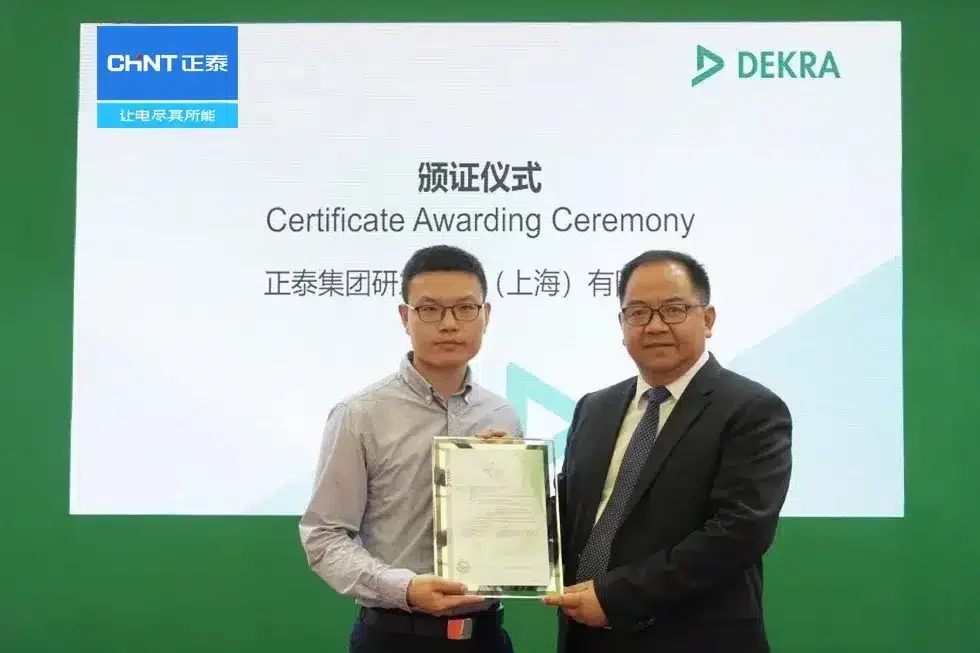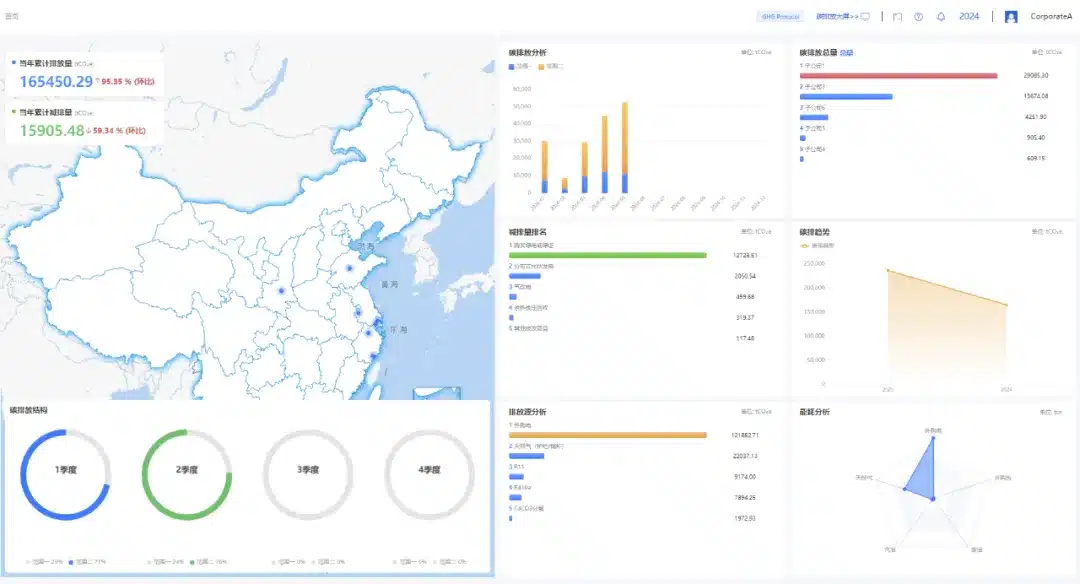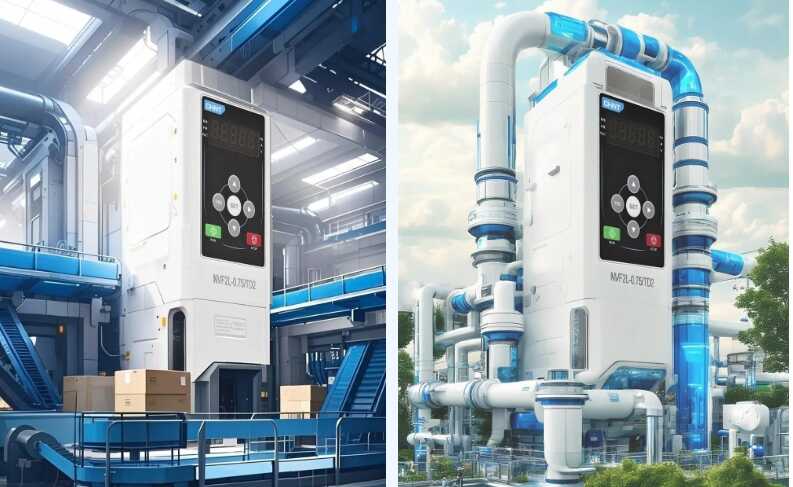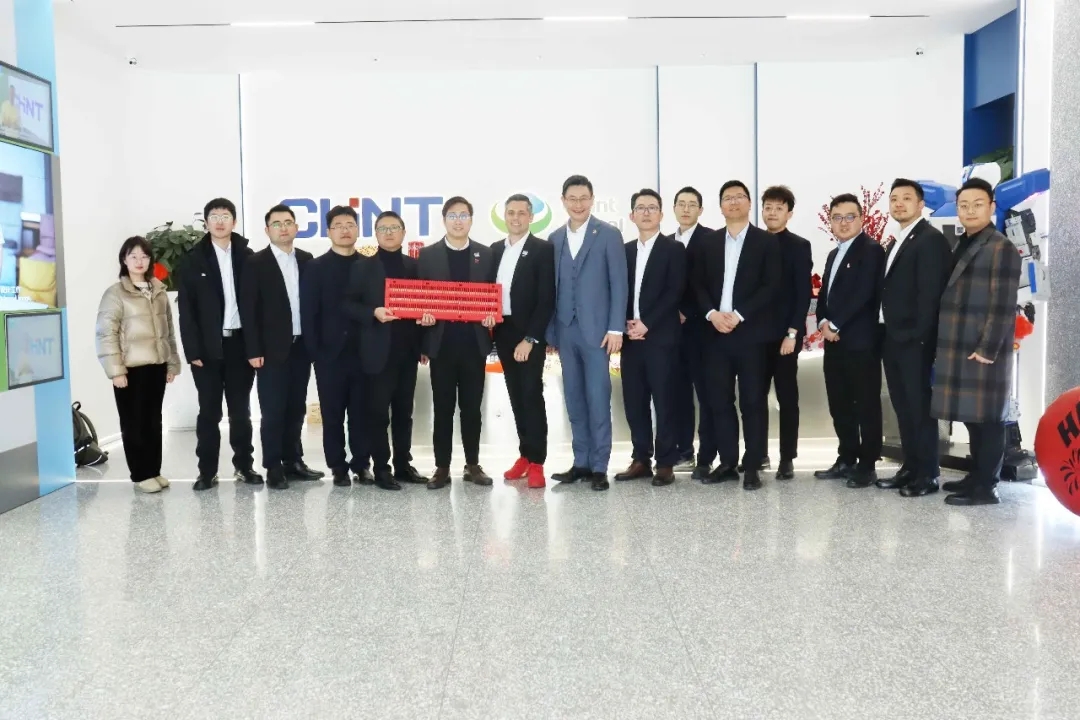The world-class third-party certification body DEKRA (Hangzhou) has evaluated the Carbon Management Platform (version V1.0) developed by CHINT R&D Center (Shanghai) Co. and issued a certificate of “Digital Carbon Management Platform Software-Carbon Accounting Functionality Compliance Certification” during the 2024 Shanghai International Carbon Neutrality Expo IN Technologies, Products and Achievements.
The certification proves that CHINT Digital Carbon Management Platform meets the requirements of ISO 14064-2018 and the GHG protocol in terms of greenhouse gas accounting and reporting models, as well as its professionalism and accuracy in the dimensions of organisational carbon accounting, analysis and management, and it also signifies that the CHINT has taken a step forward on the road of carbon accounting, carbon reduction and carbon control.
CHINT Digital Carbon Management Platform provides a one-stop digital carbon management solution to meet the needs of both internal staffs and external customers, identifying the difficulties in carbon accounting and focusing on the goals of “accurate carbon accounting, scientific carbon reduction, autonomous carbon control, and economic optimization”. Carbon emission accounting, as one of the core functions of the platform, can meet the needs of carbon accounting, carbon emission reduction, carbon certification and carbon neutralization. CHINT Digital Carbon Management Platform has five core functions:
1. Carbon accounting function, helping enterprises to find out their "carbon emissions".
The Carbon Management Platform is capable of collecting and summarizing GHG data and achieving carbon accounting for different emission sources at the organisational level.
2. Automatic report generation function, helping to meet the requirements for report preparation.
The Carbon Management Platform can generate corresponding carbon emission accounting reports according to the data and calculation standards, realizing one-click report generation.
3. "Carbon reduction" pathway formulation function, helping enterprises save energy and reduce carbon emissions.
The Digital Carbon Management Platform can automatically generate preliminary solutions for carbon emission reduction from the "Emission Reduction Effectiveness Inspection" to the "Carbon Emission Reduction", providing one-stop assistance for enterprises to efficiently set carbon emission reduction targets.
4. Supplier carbon management function, helping suppliers to reduce carbon.
Assist enterprises in managing the dynamic changes of their suppliers in terms of organisational carbon accounting, product carbon accounting and carbon emission reduction, so as to drive the supply chain and industrial chain to reduce carbon in a coordinated manner.
5. Carbon asset and carbon certification function, helping enterprises to promote "low-carbon" business.
The carbon management platform can dynamically manage the group's carbon emission targets, analyze various types of emission reduction actions, support the procurement of green power and green certificates, and link to carbon trading, carbon finance and other services.
At present, this CHINT Digital Carbon Management Platform has been deployed and used within the CHINT, covering intelligent electrics, green energy and other sectors, effectively improving carbon emission accounting and accelerating the landing of zero-carbon factories and carbon-neutral factories. Relying on this Carbon Management Platform, in April 2024, TÜV SÜD, a global authoritative third-party inspection and testing certification body, awarded CHINT Wenzhou Bridge Park (Phases I and III) with a dual certificate of “organisational carbon neutrality” and “ zero-carbon factory” (Type I, 5-star) certification.
In the next step, in order to further empower the low-carbon transformation of the industrial chain, the platform will also be promoted and used in the key supplier dimension to help suppliers implement energy saving and carbon reduction, and help CHINT achieve the zero-carbon goal of “achieving carbon neutrality in operations (including carbon offsetting) by 2028, net-zero carbon emissions from operations by 2035, and net-zero carbon emissions from the entire value chain by 2050”.















